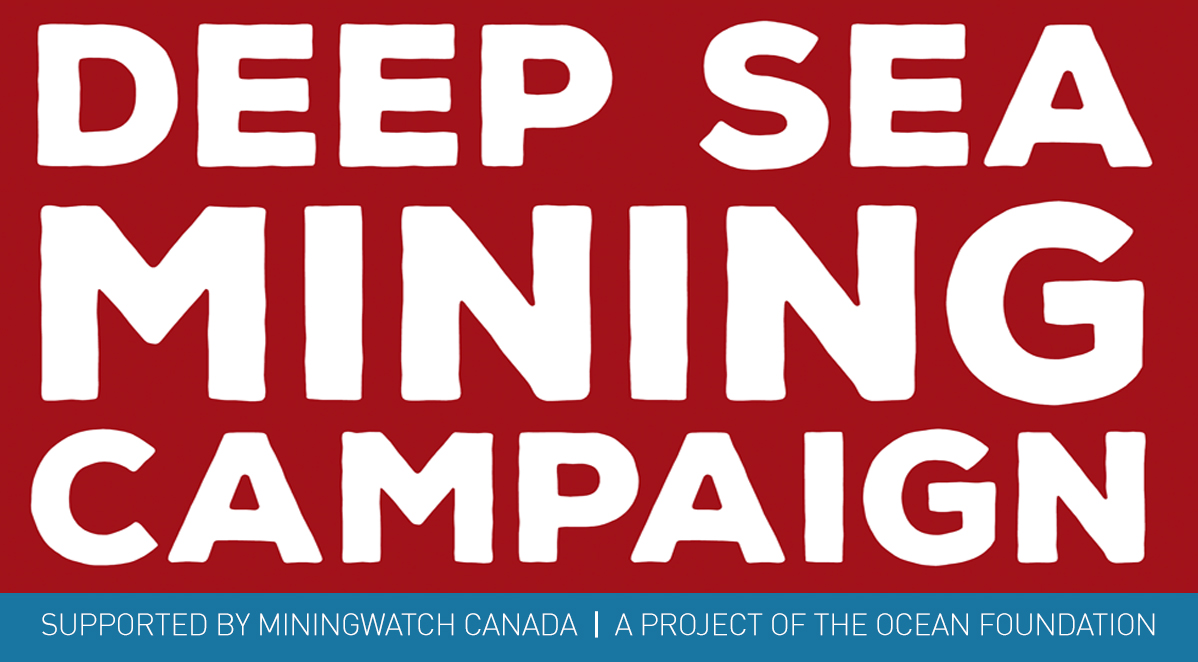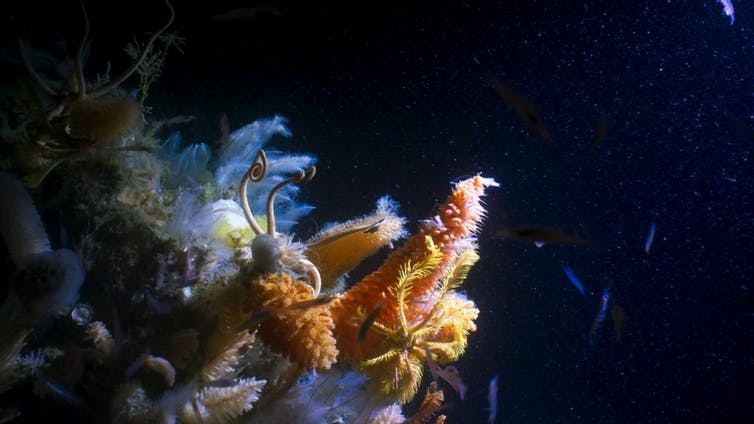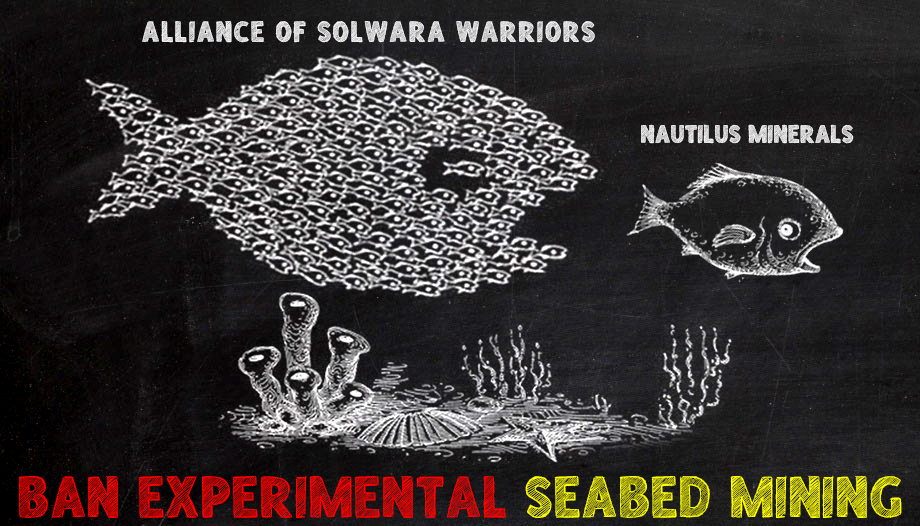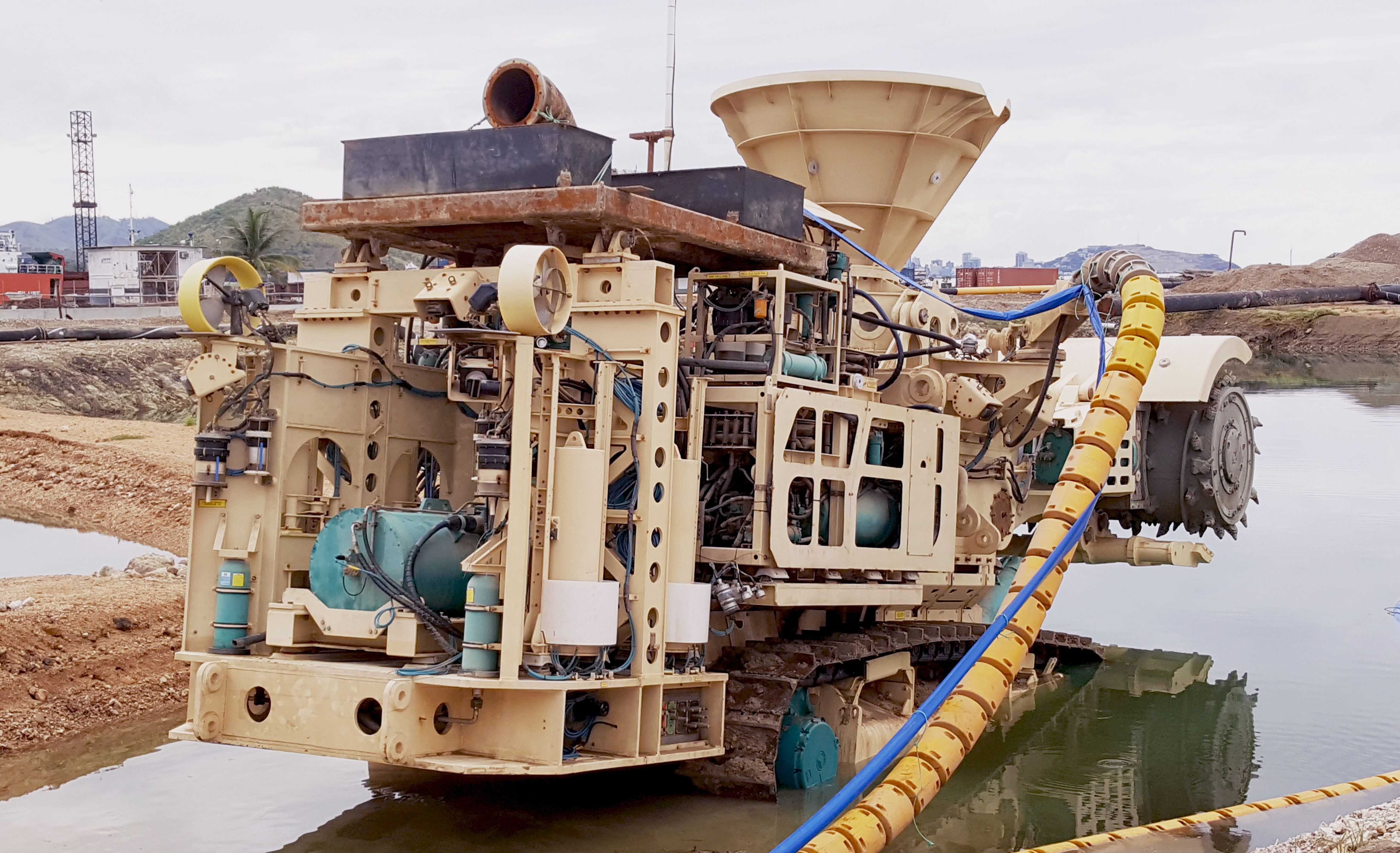See original release from the Deep Sea Mining Campaign
PAPUA NEW GUINEA | Amid financial strife and looming litigation, Sir Arnold Amet, former Papua New Guinean Attorney General and Minister for Justice advises the PNG Government to terminate its joint partnership agreement with Nautilus, recoup its 15% stake in the Solwara 1 deep sea mining project and decline to renew the licences for Solwara 1.
For Nautilus Minerals a miserable Christmas has just flowed into an unhappy new year. A series of gloomy end of year investor updates confirmed Nautilus is unable to raise the funds necessary to complete equipment for its Solwara 1 deep sea mining project [1].
Then came the final blow for 2017 – affected communities launched legal proceedings in a bid to obtain key documents that will reveal to them and all Papua New Guineans whether Solwara 1 was approved lawfully and what the true environmental, health and economic impacts of the project will be [2].
Shortly after, Company Chair Russell Debney resigned [3]. This is in spite of his long association as a board member since the company listed on the stock exchange in 2006 and the chair of the company’s predecessors, Nautilus Minerals Niugini Limited and Nautilus Minerals Oceania Limited.
Due to the high risk nature of the project, financiers have declined to bail the company out [4], suggesting the efforts of Nautilus’s two largest shareholders have been in vain [5]. The best they have been able to come up with are bridging loans of USD 7 million to meet immediate needs whilst desperately hunting for another USD 350 million [6].
Sir Amet stated,
“Investors, financial institutions and even the former chair of Nautilus can see the writing on the wall for Solwara 1. By the company’s own admission the project is an experiment with unknown environmental and social consequences and uncertain profits. The past few months have really shown the extent to which financiers and our own communities in PNG reject this project.”
“This high risk project is a foolhardy investment when our country has so many pressing needs. In order to acquire our 15% equity the National Government obtained a loan in 2014 from the Bank of the South Pacific of almost PNG K400 million. It’s also likely that the Government has provided Nautilus with generous incentives, which would further limit the potential to raise revenue from this project.”
“This is irresponsible in the context of our country’s ever increasing debt bill”, continued Sir Amet. There is little likelihood of a positive return from this project to the balance sheet of the economy. The recent bridging loans for the project are a drop in the ocean – only 1/50th of the total funds required. With an interest rate of at least 8% and a lucrative 5% cash commission going to a previous director of Nautilus, this loan represents yet another expensive debt burden for PNG – especially as the loan is secured against PNG’s equity.”
“These bridging loans are from existing Board directors through a new private investment company incorporated in the British Virgin Islands. Such financial structures are commonly known as ways for minimising tax. And because the loan is from a related party, there was no need to even consult the PNG Government as the minority equity holder. If we stay in this deal, it will be the people of PNG who will have to pay.”
“The best course of action now is for the PNG Government to terminate its joint venture agreement with Nautilus before our investment ends up sinking to the bottom of the ocean along with the company. In addition,Nautilus’s licences are renewed every 2 years. The environmental uncertainties surrounding this project call for the Government to decline renewal. Indeed, given the poor financial record of the company, the government should consider suing Nautilus for the recovery of the full K400 million investment as its 15% equity stake is now virtually worthless.”
For further information:
Sir Arnold Karibone Amet ametarnold@gmail.com; + 675 72539353
NOTES
[1] If it proceeds the Solwara 1 mine will be located in the Bismarck Sea of Papua New Guinea, approximately 25 km from the coastline of New Ireland Province, about 35 km from Duke of York Islands and 60 km from Kokopo township in East New Britain.
[2] Legal action launched over the Nautilus Solwara 1 Experimental Seabed Mine, Centre for Environmental Law and Community Rights (CELCoR) and Alliance of Solwara Warriors media release, 8 December 2017, http://www.deepseaminingoutofourdepth.org/legal-action-launched-over-nautilus-solwara-1/
[3] See, http://www.nautilusminerals.com/irm/PDF/1946_0/NautilusChairmanResigns
[4] In their Annual information forms lodged with Canadian Securities for financial years 2015 and 2016, Nautilus describes Solwara 1 as an experiment – both the environmental impacts and profits are completely unknown. See sections on Risk factors, For example:
“Our operations are speculative due to the high-risk nature of business related to the exploration and acquisition of rights to potential mineable deposits of metals. These risk factors could materially affect the Company’s future results and could cause actual events to differ materially from those described in forward-looking statements relating to our Company.” (FY 2016, p 52)
“… Performance, availability, reliability, maintenance, wear and life of equipment are unknown. There can be no guarantee that sub-sea engineering and recovery systems can be developed or if developed, will be employable in a commercially-viable manner.” (FY 2015, p54)
“… while Company studies have indicated a low likelihood of risk to the aquatic environment from mining activities, the actual impact of any SMS [seafloor massive sulphide] mining operations on the environment has yet to be determined.” (FY 2015, p61)
“Nautilus has not completed and does not intend to complete a preliminary economic assessment, pre-feasibility study or feasibility study before completing the construction and first deployment of the Seafloor Production System at the Solwara 1 Project.”
“No independent Qualified Person has confirmed the amount of these costs or recommended that these costs be incurred. There is significant risk with this approach and no assurance can be given that the Seafloor Production System, if fully funded and completed for deployment at the Solwara 1 Project, will successfully demonstrate that seafloor resource development is commercially viable.”
(FY 15, p52)
[5] Nautilus announced on 11 October the formation of Deep Sea Mining Finance Ltd. (“DSMF“) which will seek to leverage the international expertise and financial relationships of Nautilus’ two major shareholders to assist in advancing the development of the Company’s Solwara 1 Project.
[6]http://www.nautilusminerals.com/irm/PDF/1950_0/Nautilusarrangesbridgeloansandsignsnewfundingmandate





